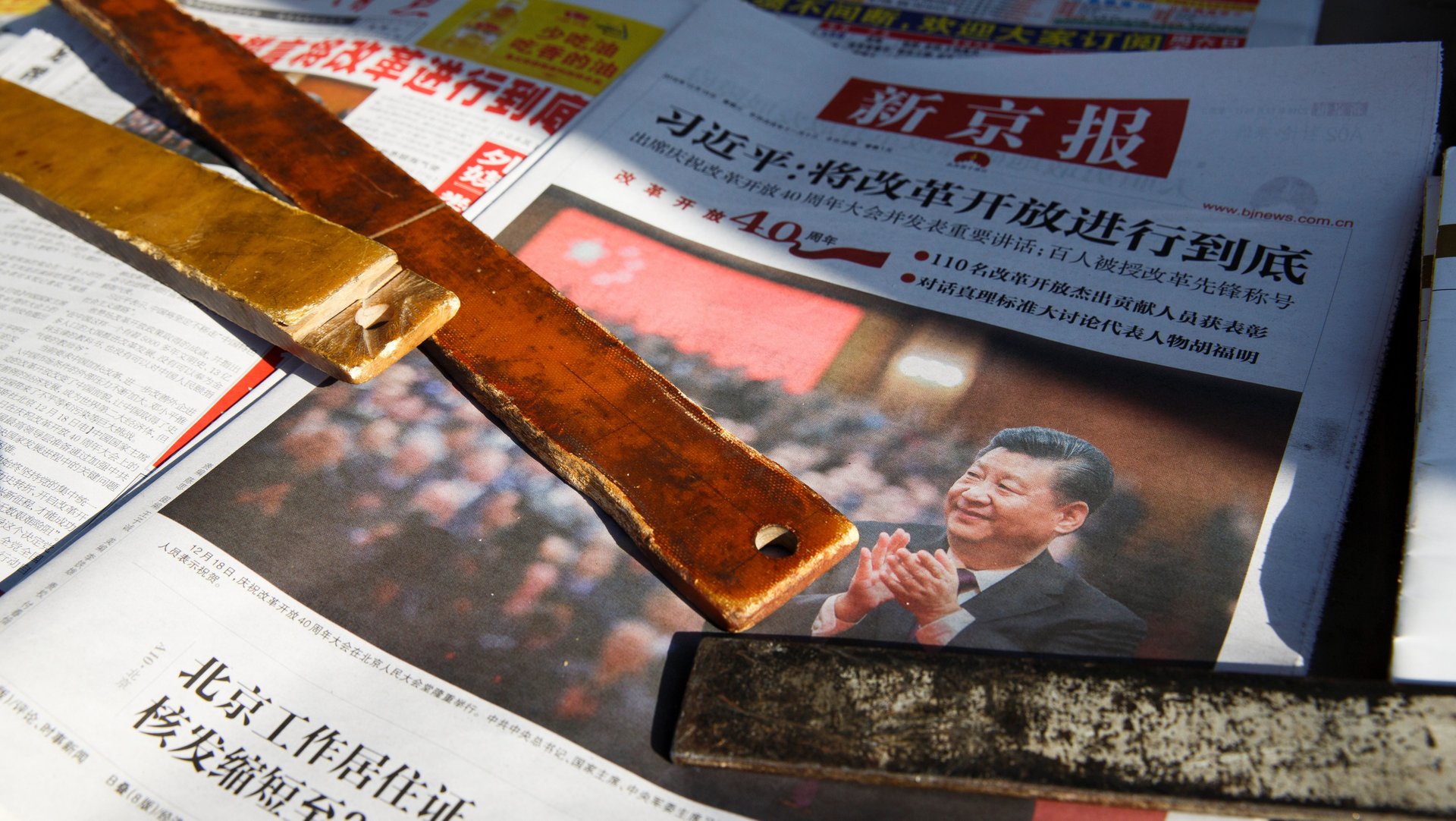China wants an even more dominant state monopoly on the media
More stringent regulation is likely coming to China’s already highly restrictive media landscape.


More stringent regulation is likely coming to China’s already highly restrictive media landscape.
A document issued last Friday (Oct. 8) by China’s top economic planner, the National Development and Reform Council, proposes new rules that appear designed to completely clamp down on media activities funded by private capital.
The 78-page document (pdf, link in Chinese), known as the “Negative Market Access List,” and issued annually since at least 2018, lists over 100 industry areas where market access is restricted. There are two broad categories: “prohibited,” meaning areas in which market players are banned from participating; and “permitted,” meaning areas in which market players must apply for state approval before being granted access.
New to the “prohibited” category this year is what the state planner dubs “unlawful news media-related businesses.” The rules stipulate that private capital will be banned from a range of media-related activities, including “news-gathering, editing, broadcasting, and distribution,” operating social media pages and accounts of news organizations, and livestreaming anything that can sway public opinion.
That represents a significant broadening of restrictions compared to the 2020 version (link in Chinese) of the negative market access list, which had put limits on the amount of private capital permitted to be involved in media enterprises and activities, but had not banned it outright.
“The 2021 list is a very broad ban on everything relating to the news media sector, while the 2020 list does allow non-public capital participation, subject to equity caps,” Henry Gao, an associate professor of law at Singapore Management University, noted on Twitter.
Of course, even prior to the proposed tightening of rules, China’s media landscape was already strictly regulated and monitored by the state. But these new regulations could signal that “implementation [of rules] could be much harsher, in line with recent crackdowns,” noted Li Yuan, the New York Times’ Asia technology columnist.
Li added that outlets that could be affected by the new rules include the widely read and respected financial news publication Caixin, backed by tech giant Tencent and venture capital firm China Media Group, and the nationalist news site Guancha, financed by venture capitalist Eric Li.
The move to completely ban private capital from China’s media landscape is in line with a “Marxist view of journalism,” says Gu Yonghua, former secretariat of the All-China Journalists Association, a Communist party-run group representing media workers nationwide.
Speaking recently to (link in Chinese) Media Tea Party, a popular Weibo account that follows media-related matters closely, Gu argued that by barring private capital from the media, the state can ensure that the fourth estate is a mouthpiece for the Communist party, and prevent profit-making motives from swaying public opinion.
A seven-day public consultation period on the new rules ends this Thursday (Oct. 14).